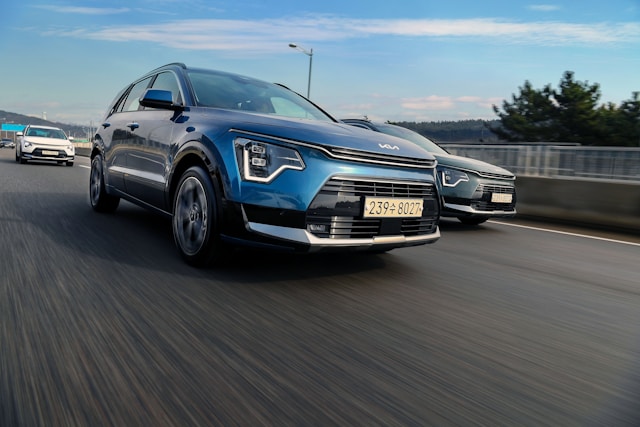When you’re at the car rental counter, you’re often bombarded with a slew of insurance options, and one that stands out is Personal Accident Insurance (PAI). It’s designed to provide medical coverage for you and your passengers in the event of a car accident. While it may seem like just another unnecessary add-on, PAI can be an important safety net in certain situations.
What is Personal Accident Insurance (PAI)?
Personal Accident Insurance (PAI) is a type of optional coverage that rental car companies often offer at the counter. Its primary purpose is to cover medical expenses if you’re involved in a car accident. The coverage extends to both the driver and the passengers in the vehicle.
PAI typically covers medical costs such as hospital stays, surgeries, and rehabilitation. It also includes ambulance services to transport injured parties to the nearest medical facility. Additionally, PAI often provides accidental death benefits, which means that in the tragic event of a fatal accident, your beneficiaries would receive a payout.
While PAI is commonly associated with rental car agreements, it can also be purchased through personal insurance policies. Some travel insurance plans may include it as well, especially for those traveling abroad.

Key Coverage Areas of PAI
Medical Expenses
The most significant benefit of Personal Accident Insurance is its coverage of medical expenses for both the driver and passengers. After a car accident, medical costs can quickly escalate, especially if surgery, prolonged hospital stays, or rehabilitation are necessary. PAI helps ensure that these costs are covered, providing a layer of financial protection that prevents hefty out-of-pocket expenses.
PAI typically covers emergency treatment for injuries sustained during the accident, regardless of fault. This can be particularly useful in situations where passengers are injured, as the coverage extends to everyone in the car, not just the driver.
Ambulance Services
In the event of a serious accident, immediate medical attention is critical. PAI also covers ambulance services, ensuring that if you or your passengers need to be transported to the hospital, the costs associated with the ambulance ride are included. Ambulance services are often expensive, and without insurance coverage, this can be an additional burden during an already stressful time. With PAI, you can focus on getting the medical help you need without worrying about the bill.
Accidental Death Benefits
One of the more sobering aspects of PAI is its provision for accidental death benefits. In the unfortunate event that a fatal accident occurs, this coverage provides a payout to the family or beneficiaries of the deceased. While no amount of money can replace a loved one, this financial assistance can help cover funeral costs, and outstanding medical bills, or provide some security to the family during a difficult time.
Additional Benefits
Some PAI policies go beyond medical expenses, ambulance services, and accidental death benefits to offer additional coverage, such as compensation for disability or loss of income resulting from injuries sustained in a car accident. These benefits can be particularly valuable if you’re involved in a severe accident that leaves you unable to work for an extended period.

Who Should Consider PAI?
While PAI might seem like an unnecessary add-on for some drivers, there are specific circumstances where it can be quite useful. Knowing when to purchase PAI can help you avoid unnecessary costs while still protecting yourself and your passengers.
Frequent Travelers or Car Renters
If you’re someone who rents cars often or travels frequently, especially internationally, Personal Accident Insurance can be a good idea. Health insurance plans may not always cover medical expenses incurred abroad, leaving you vulnerable in case of an accident. PAI fills that gap by ensuring you and your passengers are protected no matter where you’re driving. Additionally, PAI provides peace of mind during longer trips or road trips where you may be driving through unfamiliar territory.
Those Without Comprehensive Health Insurance
For individuals who do not have comprehensive health insurance, PAI becomes even more valuable. If your existing health plan has limited coverage for car accidents, or if you’re uninsured altogether, PAI can serve as a primary source of medical coverage in case of an accident. The same goes for passengers who may not have health insurance. Having PAI ensures that everyone in the vehicle is covered.
Situations Where PAI Might Be Unnecessary
In some cases, purchasing Personal Accident Insurance may not be necessary. If you already have sufficient coverage through your auto insurance or credit card benefits, the added cost of PAI might be redundant.
Adequate Health Insurance Coverage
If you already have health insurance that covers medical expenses from car accidents, you may not need PAI. Most comprehensive health insurance plans provide sufficient coverage for hospital visits, surgeries, and other related expenses. It’s important to review the details of your health plan before deciding to purchase PAI, as you may already be covered.
Credit Card Protections
Many credit cards offer rental car insurance as part of their perks, and some also include personal accident coverage. If you’re using a credit card to pay for the rental, check with your card provider to see if they offer this protection. This can eliminate the need to buy PAI from the rental company, saving you money while still ensuring you’re covered.
How to Evaluate if You Need PAI
Before deciding whether to buy Personal Accident Insurance, it’s important to do a bit of research into your existing coverage and evaluate the specifics of your travel situation.
Reviewing Your Existing Insurance
The first step is to review your current auto insurance policy and health insurance to see if they provide any coverage for accidents while in a rental car. Some policies extend to rental cars, but not all do. It’s also worth checking the deductibles associated with your coverage to determine whether PAI would save you money in the long run by reducing out-of-pocket costs.
Considering Travel Destination
If you’re traveling internationally, it’s crucial to confirm whether your health insurance will cover medical expenses abroad. Many U.S. health insurance plans have limited or no coverage outside of the country, making PAI a smart option for overseas trips. Additionally, check local driving laws and conditions—if you’re driving in a country with challenging road conditions or where you’re unfamiliar with the roads, PAI can provide an extra layer of protection.

